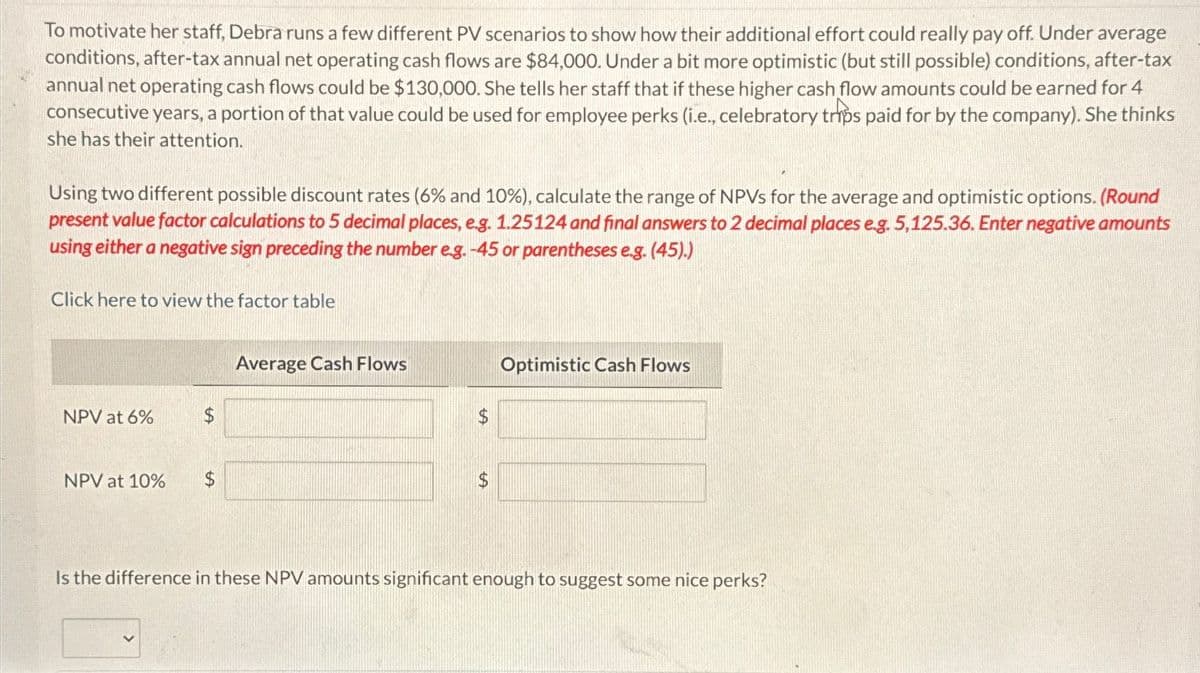To motivate her staff, Debra runs a few different PV scenarios to show how their additional effort could really pay off. Under average conditions, after-tax annual net operating cash flows are $84,000. Under a bit more optimistic (but still possible) conditions, after-tax annual net operating cash flows could be $130,000. She tells her staff that if these higher cash flow amounts could be earned for 4 consecutive years, a portion of that value could be used for employee perks (i.e., celebratory trips paid for by the company). She thinks she has their attention. Using two different possible discount rates (6% and 10%), calculate the range of NPVs for the average and optimistic options. (Round present value factor calculations to 5 decimal places, e.g. 1.25124 and final answers to 2 decimal places e.g. 5,125.36. Enter negative amounts using either a negative sign preceding the number e.g. -45 or parentheses e.g. (45).) Click here to view the factor table
Net Present Value
Net present value is the most important concept of finance. It is used to evaluate the investment and financing decisions that involve cash flows occurring over multiple periods. The difference between the present value of cash inflow and cash outflow is termed as net present value (NPV). It is used for capital budgeting and investment planning. It is also used to compare similar investment alternatives.
Investment Decision
The term investment refers to allocating money with the intention of getting positive returns in the future period. For example, an asset would be acquired with the motive of generating income by selling the asset when there is a price increase.
Factors That Complicate Capital Investment Analysis
Capital investment analysis is a way of the budgeting process that companies and the government use to evaluate the profitability of the investment that has been done for the long term. This can include the evaluation of fixed assets such as machinery, equipment, etc.
Capital Budgeting
Capital budgeting is a decision-making process whereby long-term investments is evaluated and selected based on whether such investment is worth pursuing in future or not. It plays an important role in financial decision-making as it impacts the profitability of the business in the long term. The benefits of capital budgeting may be in the form of increased revenue or reduction in cost. The capital budgeting decisions include replacing or rebuilding of the fixed assets, addition of an asset. These long-term investment decisions involve a large number of funds and are irreversible because the market for the second-hand asset may be difficult to find and will have an effect over long-time spam. A right decision can yield favorable returns on the other hand a wrong decision may have an effect on the sustainability of the firm. Capital budgeting helps businesses to understand risks that are involved in undertaking capital investment. It also enables them to choose the option which generates the best return by applying the various capital budgeting techniques.

Trending now
This is a popular solution!
Step by step
Solved in 3 steps









